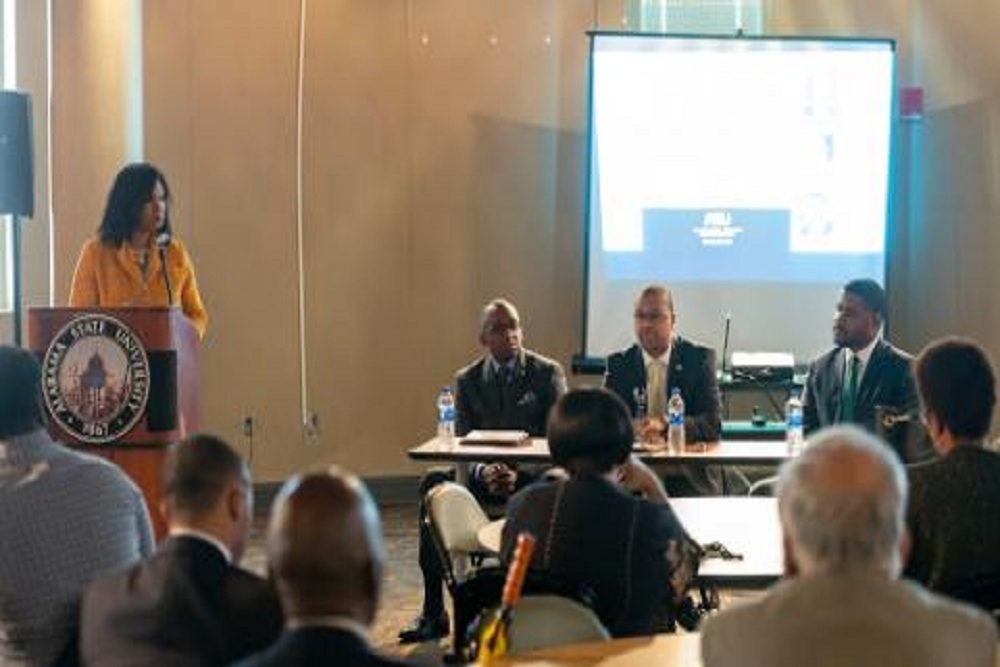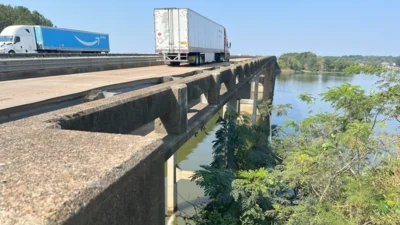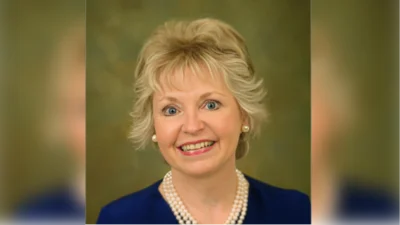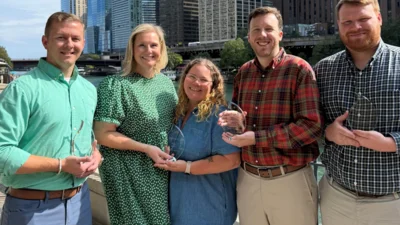Alabama State University issued the following announcement on Feb. 19.
On Tuesday, Feb. 18, Federal Communications Commission Commissioner Geoffrey Starks led a panel discussion on “The State of Broadband Access in Alabama” on the campus of Alabama State University.
The event was sponsored by ASU’s College of Liberal Arts and Social Sciences and the University’s Department of Communications.
The event brought together lawmakers, employers, business leaders and representatives from AT&T and Alabama Power to address regional inequalities impacting the state and solutions for closing the digital divide and increase high-speed broadband access to all in Alabama.
According to the FCC broadband or high-speed Internet access allows users to access the Internet and Internet-related services at significantly higher speeds than those available through "dial-up" services
Joining Starks on the panel were State Senator Bobby Singleton, an ASU alumnus, who serves as the Senate Minority Leader of the Alabama State Senate, and Selma's Mayor Darrio Melton.
This community engagement discussion comes as Alabama community leaders and Legislators have put forth efforts to address the state’s connectivity challenges.
Last year, Gov. Kay Ivey signed two pieces of legislation aimed at improving and expanding broadband services across Alabama. The $30 million initiative specifically targets rural and small communities that are often unserved by high-speed internet.
In Alabama, it is estimated that there are 276,000 people in the state that do not have any wired internet providers available to them, while 800,000 residents lack access to high-speed internet or 25 megabytes per second download speed. The FCC determines broadband to be a minimum of 25 megabytes per second download speeds and 3 megabits per second upload speeds.
Starks noted that broadband access is necessary if we truly want to empower our communities in this digital age.
“High-speed broadband has become as necessary for participating in our economy, society, and democracy as electricity or roads,” said Starks, who served in the Obama Administration. “It has become a necessity for much of our day-to-day lives.”
Starks noted that this technology should be treated as something no community can live without, adding that for libraries, schools and universities, health clinics, businesses and hospitals, broadband is a basic need.
He explained that broadband is an important tool for expanding educational and economic opportunities for consumers in remote locations; that broadband makes "telemedicine" possible -- patients in rural areas can confer online with medical specialists in more urban areas and share information and test results very quickly; and broadband helps individuals efficiently access and use many reference and cultural resources via the Internet.
Broadband also is important to universities, such as ASU. It allows students to take advantage of many distance learning opportunities, like online college courses and continuing or senior education programs.
Melton said educational opportunities using high-speed broadband are immense.
“High-speed internet has become our modern encyclopedia. By using these technologies, more educators have begun to change the way we think about educational process and improving education for their students,” said Melton. “That’s why I think we have to be intentional that HBCUs receive the funding so our sons and daughters have the opportunity to gather those skills. So, as we have this conversation about broadband, HBCUs funding should be a part of it.”
Fiber optic network, Singleton said, creates a level playing field so that HBCUs and other institutions can compete with the rest of the world.
“The generation that we are in today, broadband is a must. It’s a utility, just like water, sewer or highways,” said Singleton. “In order to shore up universities’ broadband access, such as Alabama State University, we must be wired up to have dedicated lines for research. We now have to take all the service on the same line that students are using. States around us already have that dedicated line and that is something we must do in the state of Alabama in order to have our students compete in a global market.”
Singleton acknowledged that HBCUs, especially teaching universities such as ASU, will have to start looking at what the new tools are being used in education.
“If we are moving to a technology-based education, then HBCUs teaching has to go to a technology-based education,” Singleton said. “We have to make sure our teachers coming from HBCUs are able to teach these technological skills so our students will be successful in the 21st century.”
Starks agreed. “HBCUs have a critical role to play, both in terms of making sure that the next generation of coders and technologists are coming from institutions that have a diverse perspective.”
The FCC, Starks said, is focusing on making high-speed internet more affordable.
“The longer communities exist without adequate access to broadband, the more we will see it
effect the fabric of America – our economy, the health of our communities, our well-being as a country and the individual dignity of those who live outside of the most connected communities,” Starks said.
By advancing more affordable internet connections, Starks said all Americans can have access to high-speed broadband.
“We need to start to come up with an affordable option for a lot of Americans…so Americans can say that’s worth it for me to get that connectivity to my home to my apartment, to where I live.”
Starks noted that today, African-American homes generally are 50 percent less likely to have broadband in their homes than their white counterparts.
“Having an affordable option is absolutely critical,” Starks added.
Original source can be found here.






 Alerts Sign-up
Alerts Sign-up